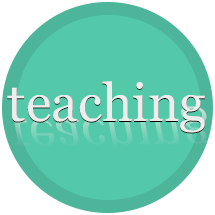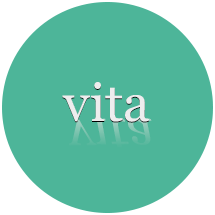teaching
Although the material and the methods of evaluation are often quite different in linguistics compared to composition, I have tried to implement the same teaching philosophy in my linguistics classes that I developed through teaching writing. Writing pedagogy has had a significant impact on my teaching style and educational philosophy, and this has bled over into my approach to teaching linguistics as well. Whether teaching writing or linguistics, I try to keep class time from being a teacher-centered, teacher-led lecture. Instead, I try to let the concepts grow organically out of student-led classroom discussion, as it has been my experience that students who are passively the receiver of knowledge dispensed from outside themselves and their experience do not learn or retain as much as they are capable of.
linguistics courses
This course will center on the implications of the reality of language variation in the teaching of English specifically in the United States. Linguists know that variation is an inherent fact of language. This will then create multiple dialects of a language, which linguistics see as each being of equal validity. However, sociolinguistics teaches us that dialects are intimately connected to social factors like age, gender, and most importantly power. Therefore, some dialects of a language will be more valued than others based on the power maintained by the speakers of that dialect. Where these facts come to a head is in the educational system. So, the question of what and how to teach so-called Standardized American English becomes extremely important. This course then, will look at all the linguistic and socio-political implications of teaching composition at the college level.
Some questions we will seek to answer: How do we teach from an informed sociolinguistic perspective? Should we teach Standardized English or should we teach another variety of English, or some combination of the two? How do we maintain our sociolinguistic views of language diversity while still teaching Standardized English? How do we help speakers of a non-standard dialect value their own language in the classroom?
This course is an introduction to linguistics, but it goes beyond a mere overview of the field to Linguistics but rather seeks to provide students with the tools to do linguistic analysis at the levels of phonology, morphology, syntax, and semantics while at the same time emphasizing the influence of social factors on variation and change in each of these areas.
This class is developed around a series of problem sets and exams which ask students to apply classroom concepts to real world data.
In this course we investigate one of the most interesting questions in Linguistics, how we subconsciously get from sounds and words to meaning. We will investigate how sentences are structured and attempt to model the rules that must be in place to produce all the possible grammatical sentences of English. We will tackle several interesting linguistic phenomena including: direct and indirect objects, embedded and relative clauses, negation, yes/no and WH questions, C–command, EPP, Case, theta roles, and questions.
This class is developed around a series of problem sets and exams which ask students to apply classroom concepts to real world data (both in English and other languages).
In this course, we study the differences in the varieties of North American English from a scientific perspective being guided by contemporary sociolinguistic theory. We investigate regional, social, ethnic, gender, and style-related language variation. We explore issues related to the evaluation of individual dialects regarding the perceptions and attitudes of speakers and hearers of these varieties. We also address issues related to the so-called Standard English ideology and even seek to uncover linguistic profiling and discrimination.
The course will be discussion based and will involve a good deal of classroom participation and presentation. Students will be asked to complete original sociolinguistic research by collecting data on actual real-world language variation and presenting their findings in both oral and written form.
This course is a more specialized class in language variation focusing on the important effects of gender on language variation and change. I use the Coates and Pichler (2011) reader and center the class on discussion of actual articles on language and gender. We begin with the arguments for the different approaches to the study of language and gender (the biological, dominance, and difference approaches), and then move on to linguistic constructions of masculinity and femininity, and we end the course looking at the effect of gender on language change and discuss Labov's Gender Principles (1990). This course is cross listed in Women's Studies.
This class is heavily dependent on the course readings and active discussion. Along with tests and quizzes which ask students to apply concepts and connect studies to methods and findings, the students also conduct primary research looking at the gendered usage of compliments on their campus.
In this course, we will look at representations of and ideas about what it means to be Southern with a particular focus on how language is involved in these representations. We will look at representations of the South and Southern English in a variety of modes: short stories, novels, music, film, and pop culture. We will investigate how the representation of Southern English helps develop the trope of Southerness in a variety of ways and how these representations situates the South in a socio-cultural dialogue involving family, place, religion, race, and coping with the past and present of the South. We will draw on traditional literary criticism as well as insights from the various sub-disciplines of linguistics including sociolinguistics, discourse analysis, and literary linguistics.
This class seeks to create a collaborative, critical inquiry of what is the South and how language is used strategically in this representation. Learning is assessed by weekly reading quizzes, group and individual class presentations, and a paper presenting your own analysis of a representation of the South in some aspect of Culture.
writing courses
This course is designed to help students develop the skills needed to communicate orally using presentation techniques and technologies expected at the college and professional level. In the course, students will learn to compose effective oral presentations in a variety of modes as well as to become a more critical audience member through analysis of peer presentations. This course also introduces students to body language and voice techniques that will help them communicate more effective verbally and non-verbally. Additionally, this course introduces students to the fundamentals of graphic design and effective visual presentation strategies.
This course is designed to help students further develop writing, reading, and critical thinking skills and learn to apply these skills to the specific constraints, genres, and audiences of the professional world. Students learn the essentials of professional communication focusing on you-attitude, clear communication, and the fundamentals of document design. Students will also produce the career documents (resume and cover letter) they will need to apply for advanced jobs in their field.
This class is developed around a central project in which the students will contact a non-profit organization and produce a professional document that addresses a real life need for that organization. The groundwork, research, and design of the document are carried out in student groups throughout the semester.
This course is designed to help students develop argumentative writing, textual evaluation, and critical thinking skills as well as to introduce students to researching skills that will be necessary in the university and in a professional career. In this course, students will learn both to critically analyze texts and to use other texts to develop their own ideas and arguments.
This course is developed around the concept and skill of counterargument. Through exploring and analyzing a variety of arguments both textual and visual, students construct a definition of what an effective argument should look like and ultimately produce a argument that is effective to a target audience by appealing to not only to those who would agree with their position but also to those who are ambivalent or are actively opposing their position.
This course is designed to help students develop the writing, reading, and critical thinking skills that they will be expected to have mastery of at the college level. In this course, students will learn to compose essays in a variety of modes to communicate different purposes to different audiences. This course will also provide an introduction to modern researching skills that will be helpful as students move through their college and professional career.
This course is developed around the implementation of the entire writing process, from the conception of a topic, to the brainstorming and drafting of a thesis and argument, to the revision and editing of a final draft. The key to this course is to learn that writing is a process not a product.
This course is designed around the needs of the students as they begin to develop skills in academic writing and reading.
This course is developed around gaining proficiency with the fundamentals of the mechanics of the Language of Wider Communication as they are currently expected in academic discourse in the United States. However, in order for this class not to fall into the trap of being a transmitter of the Standard Language Ideology, direct instruction is given to the importance and necessity of non-prestige dialects and the realization that the Language of Wider Communication is merely one dialect of English that has gained certain cultural capital in some settings and is thus no more valid, correct, or logical than other dialect.





